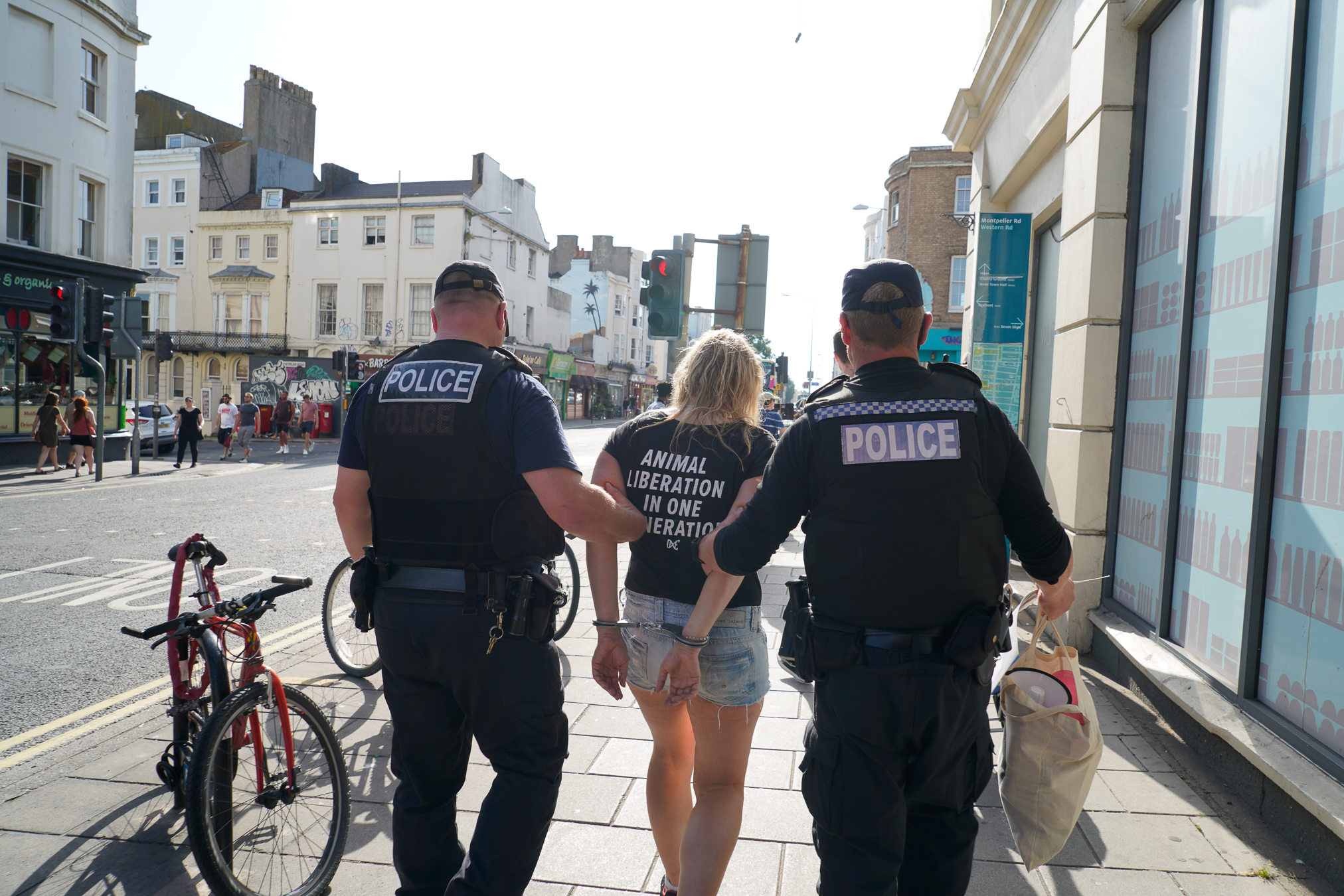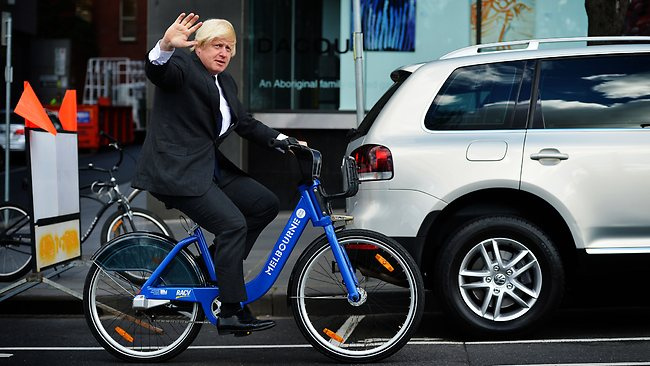Vegan activists have been targeting supermarkets and corporations that profit from the sale of animal products, using a radical yet entirely nonviolent form of protest.
By Becca Bashford, News Editor.
Vegan activists have been targeting supermarkets and corporations that profit from the sale of animal products, using a radical yet entirely nonviolent form of protest.
In late June, nine activists were arrested at the Brighton Waitrose after staging a “disruption”, which saw forty demonstrators block access to the dairy, fish, and meat isles in the store. The activists held up signs which read: “MEAT IS MURDER”, and “ARE YOU A BREASTFEEDING ADULT?”. The activists went on to give impassioned speeches about the nature of fish farming, and the inherent cruelty of assuming animals lives are less worthy because they are non-human, and are unable to defend themselves.
The activists targeted Waitrose because of their recent campaign which is said to “humane-wash” the process of slaughtering fish and farm animals. They argued that consumers were being lied to about the nature of fish farming and industrial farming, and that Waitrose were therefore complicit in misleading their customers about the origins of the products they sell. The activists then responded directly to Waitrose’s Welfare Policy, shouting: “What about their freedom to live? Their freedom not to have a knife to their throat?”.
The activists took to the street outside the Waitrose store, where they were met by a large group of police officers. According to a statement sent to The Badger by the activists, the police acted in “an extremely aggressive” manner, and demanded personal details from the group. The statement further noted that those that didn’t comply “…were wrestled to the ground and dragged into a police van”.
A spokeswoman for the activists stated:
“The police violence here demonstrates how far they will go to protect a supermarket profiting from animal abuse. The [number] of police here shows they were planning on attacking us from the beginning – we are a nonviolent movement, their aggression was totally over the top”.
The Badger approached Sussex Police for a statement on the protest, and they responded with the following:
“Sussex Police have arrested nine people following protests across Brighton. Officers attended Waitrose in Western Road to reports of a large group people being involved in an animal rights protest just before 5pm on Saturday (June 29). Police provided an immediate response which result in nine members of the group being arrested for failing to provide their names or addresses. Chief Superintendent for Brighton and Hove said: “We worked with the supermarket staff and organisers to facilitate peaceful protests that balance the rights of those to protest without disproportionately affecting the rights of the general public. However disruptive, criminal and intimidating behaviour will not be tolerated and we will use our police powers to act on this.”
The Brighton activists who take part in multiple disruptions across the city, varying in scale and severity, said: “As we are a social justice movement, we align ourselves with the principles of previous movements. We take direct action, because if we were the oppressed individuals, we would also want liberation. Real change [is] achieved not just by asking politely, but by forcing the issue into the media by participating in necessary physical disruption … we will continue to force the issue into peoples’ awareness until speciesism has been rejected by society”.
The activists have appeared in various places across the city, including Waitrose, McDonalds, and other large corporations which profit from selling animal products, as well as some small businesses. They are the Brighton chapter of an international animal justice collective, Direct Action Everywhere (DxE). DxE use non-violent yet radical means to shine a light on the often inhumane conditions animals endure, whilst also seeking to start a conversation about speciesism, and the catastrophic effects that the meat and dairy industry has on the planet.
According to DxE’s core values, their actions “…reflect the seriousness and urgency of the cause. Animal liberation is not a hobby; it’s a social justice movement”. Their overarching mission is to achieve “… revolutionary social and political change for animals in one generation”.
To spread their message of animal liberation, DxE’s chosen methods of protests include disruption and civil disobedience, which they cite as the most peaceful but effective means of starting conversation, and forcing systematic change in the ways we view animal rights. These methods allow direct communication with the consumers of the animal products. While this approach might seem invasive, there is something to be said about DxE’s approach to bringing the issue of animal rights into everyday conversation.
The meat, dairy and fish industries are factually one of the biggest contributors to the climate crisis. According to a recent New York Times investigation, livestock accounts for between 14.5 percent and 18 percent of human-induced greenhouse gas emissions worldwide. The devastating reality and consequences of animal agriculture cannot be understated. From deforestation in the amazon, to water shortages and ocean dead zones from agricultural pollution – the conversation about how what we eat effects the planet has only just begun. This reality, as well as the harsh realities many animals face when bred for slaughter, is mirrored in the meteoric rise of vegetarianism and veganism worldwide. For example, the number of vegans in the UK has soared to 3.5 million in 2019, compared to 540,000 in 2016. The Brighton chapter of DxE have just taken part in an international action – a ‘Global Lockdown’ for animal liberation. In their most radical action yet, three activists chained themselves by the neck to the entrance of Brighton’s town hall – demanding that legislators make significant progress in pushing forward ‘Rose’s Law’, an animal bill of rights.
The bill demands that animals have:
- The right to be free – not owned – or to have a guardian acting in their interest.
- The right not to be exploited, abused, or killed by humans.
- The right to have their interests represented in court and protected by the law.
- The right to a protected home, habitat, or ecosystem.
- The right to be rescued from situations of distress and exploitation.
Direct Action Everywhere have stated: “If legislators refuse to sit down and create a path to an Animal Bill of Rights, activists will stage the largest ever coordinated mass civil disobedience for animal rights. We know from history that protest works”.
The Badger was invited to attend DxE Brighton’s town hall action – stay tuned for our follow up article where we interview DxE Brighton activists, and analyse the public’s reaction to their protest.




